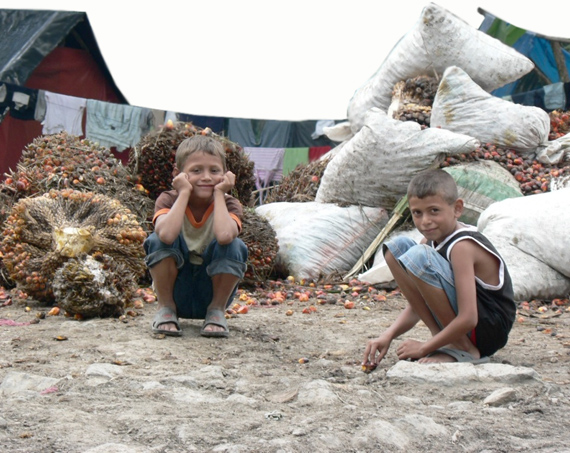|
Only days after
the cancellation of the German Investment and Development Bank’s (DEG) US$ 20
million loan to Corporación Dinant, landowner and palm producer Miguel Facussé
has received another hard blow. EDF Trading, a London-based subsidiary of the
French public-owned corporation EDF SA and a member of the EDF Group, has
decided to terminate a US$ 2.8 million contract with Exportadora del Atlántico
SA, for the purchase of
carbon credits
in Bajo Aguán, under the United Nations’ Clean Development Mechanism (CDM).
Sirel spoke about this new
development with Eva Filzmoser of CDM Watch.
-How did the
French energy giant come to this decision?
-It’s the
result of international pressure. My organization, CDM Watch,
organized a strong campaign together with Biofuelwatch and Rainforest
Rescue (Rettet den Regenwald) aimed at all those directly involved in the
CDM project in Bajo Aguán.
We sent out an
open letter backed by 76 organizations from around the world, and thousands of
email messages to the British government asking it to withdraw its authorization
for the project.
We also sent a
letter to the CDM Executive Board, which is the body in charge of the
project’s application process.
At the same time,
the Carbon
Market & Investors Association (CMIA) issued a press release requesting
that the parties immediately terminate their commercial relationship with the
project itself.
The DEG’s
decision to withdraw its financing to another company owned by Miguel
Facussé was an additional element that contributed to convince EDF
Trading to back out of a highly questioned project.
We think they
wanted to avoid harming their public image.
-Was there
any direct communication from the British government?
-We receive a
response to our open letter, where it informed us that it considered that the
accusations of human rights abuses in Bajo Aguán were very serious.
The government
also told us that it planned to ask for an explanation from the government of
Honduras, as well as EDF Trading’s opinion on the project, and that
it would ask the CDM Executive Board to take the situation into account
when it came time for it to review Exportadora del Atlántico’s
project application.
We hope that
the Executive Board will investigate the situation and will reject the
application.
-How important
is this decision by EDF Trading?
-It has a major
political impact. This is something that had never happened before and it will
set a very important precedent, because it means that human rights have finally
been included in the considerations of a CDM project.
We have to make
the most of this outcome, because it can have a strong impact on other
investors.
-Corporación
Dinant declared that there is no evidence connecting the company to the human
rights violations in Bajo Aguán, and that it is being targeted by an
international campaign to harm it. What do you think of these statements?
-I’m not
surprised and I think it’s the only thing it can do.
In Bajo Aguán there’s a very
serious land conflict and a systematic violation of the human rights of its
peasant families.
As things
stand, no project can be approved in this region of Honduras.
-What positive
impact do you think this decision will have on the peasant families of Bajo
Aguán?
-The
international community is closely following the situation in Bajo Aguán. The
companies that invest in the region now know that if they abuse human rights
they will have to face very significant financial costs.
In Miguel
Facussé’s case, he’s already received two very hard blows within only days
of each other. We believe he needs to reconsider his actions and change his
relationship with the peasant organizations.
-What’s next?
-We’re waiting
for a decision from the CDM Executive Board, and we’re going to continue
pressuring the British government until it withdraws its authorization for the
project.
 |